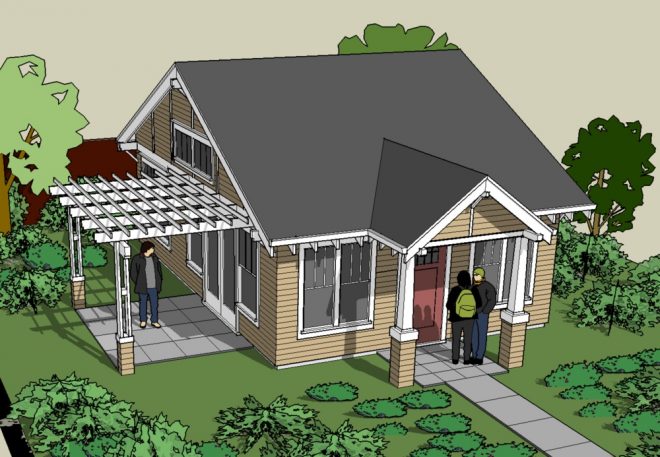
Building an ADU
Successfully Negotiating the Contract with your General Contractor
Virtually all construction contracts between a homeowner and a general contractor (GC) provide for payments based on time and performance of the work described in the contract. Most contracts list specific tasks that must be completed for payment to be released (i.e. foundation, framing, rough utilities, stucco, etc.) but they seldom spell out each individual component and who is responsible for providing them.
Since every construction item can affect the construction cost and schedule, it is important that the parties each acknowledge, understand, and agree on what service is provided, who pays for it, and the duration of time necessary to perform the agreed-upon work under the contract.
When it comes to ADUs, which most homeowners view as an inexpensive way to build a second unit, negotiating a good contract may result in savings of up to tens of thousands of dollars. Having designed dozens of ADUs in the last two years and based on conversations with both homeowners and general contractors, we assembled a short (and incomplete) list of items to watch for when negotiating a fair construction agreement.
We Can Help. Call 310-592-5566
1. Sewer connection: The GC usually includes the sewer connection, but in most cases, he will break the existing driveway to run the sewer and water pipes. His price does not include redoing the driveway. Patching the existing driveway is not an attractive option, while a new driveway may cost up to $10,000.
2. You have the option of having separate gas and electrical meters installed for the ADU or tying into the existing home grid. Since this is never specified in the plans as it does not affect the building permit, either option must be negotiated in advance as it will affect the contract price and the construction schedule.
3. Unseen items such as termite damage and substandard foundation are hard to estimate but must be discussed beforehand, as the cost to repair these items can be significant.
4. Appliances are you usually purchased by the owner but could be installed by the GC if agreed on in the contract, saving the owner hundreds or even thousands of dollars in having to hire an outside installer.
5. The same goes for floor finishes and cabinets. It is advisable to agree on who purchases and who install these items.
6. Construction items that are seldom specified and could lead to disagreements as to whose responsibility it is to provide:
-Moisture sensor in bathroom
-Garbage disposal
-Smoke detector and carbon monoxide detector
-Down light fixtures
-Door knobs, locks, and latches
-Wall baseboards
-Closet rod and shelf, at a minimum
-Covers for outlets and light switches
-Electrical sub-panel and cabling upgrade, per latest code
-Hot mop in showers (most GC bid for a pre-fab shower)
-Gas supply for range, water heater, and dryer
-Bathroom accessories
-Tankless water heater and ductless split HVAC system
-Landscape repair affected by construction work
-Frameless glass shower enclosure
As mentioned earlier, the list is incomplete, but it will hopefully help in understanding the difference between a poorly negotiated contract and one that can save money and aggravation. The clearer a homeowner and the general contractor are from the beginning of your negotiations, the more likely they will stay on time and on budget.
To learn more about our services or to schedule a free consultation, contact us at ortnerdesign@gmail.com



